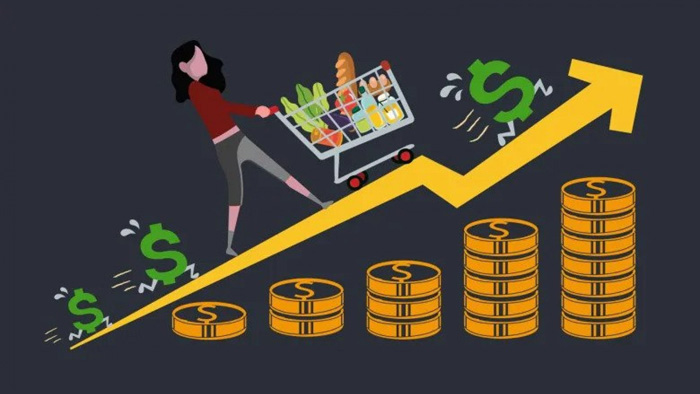Inflation occurs when too much money chases too few goods. That’s pretty simple. But how to prevent it is not simple. Inflation has long baffled governments. If the path to dealing with inflation were clear, governments would do what needs to be done, and inflation would not be a problem. Governments don’t deal with inflation effectively because they don’t know what to do.
Traditionally, it is considered that governments have had two tools for dealing with inflation. One is to increase the rate of interest. When the interest rate is high, people are more reluctant to borrow, so they will purchase fewer big ticket items: homes and cars. Increasing the interest rate reduces inflationary pressure, but is not guaranteed to stop it. Furthermore a government that increases interest is not popular with voters.
The other tool available to government is to decrease the money supply, and this government can do by taxation. If there is less money, there will be less demand for goods. This too is effective, but raising taxes is never popular, so governments are reluctant to do this. If taxes are to be raised, the question is what ought to be taxed. Were we to accept the principle “Tax undesirable, destructive behaviour; reward desirable, constructive behaviour,” we could at least have some interesting discussions, but that too, governments seem reluctant to do. Following this principle, governments should be taxing behaviour that impoverishes the earth, that is the consumption of non-renewable resources – most notable petroleum, but other minerals as well. The arts and service industries should not be taxed. But aside from a few timid carbon taxes, we have yet to see government action following this principle.
What concerns me, is that we really don’t want to curb our consumption. We have come to accept high levels of consumption as normal. We expect to be able to eat whatever we want. We are not content with eating tomatoes in summer. We expect to eat tomatoes all year round and our grocery stores make sure that we can. We expect to travel at will. We think nothing of a daily commute between Steinbach and Winnipeg. We think nothing of the fact that a one tonne vehicle is typically needed to transport a 70 kg. human. We assume that a holiday means extensive travel. The size of house we live in is not determined by how much space we need. Rather, the size of house we occupy is determined by what we can afford.
Our consumption of non-renewable resources is continuing to increase. In part, this is because the world population continues to increase, in part this is because we are becoming more wealthy, and in part this is possible because we are developing technology that makes it easier to extract resources from the planet.
But no matter which way you cut it this is not sustainable. There are limits to growth, even if we can’t agree where those limits are.
When a resource becomes scarce, the price of that resource normally goes up. This results in inflationary pressure, but our free market economies adjust and more resources appear. The technology improves, or more resources are applied to the extraction of that resource, and the price of that commodity comes down. But what if that is not possible? What if there simply is no more of that resource? Then demand will need to come down, and that will only occur if the price remains high. Is that then inflation? Or is it a signal that we need to consume less?
I am convinced that the time is coming when we will need to learn to prosper even as we consume less. Are the current high prices a signal that we need to learn to live with less even now, or is this merely inflation?




